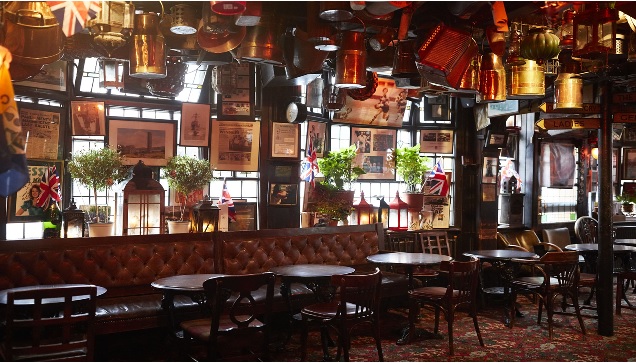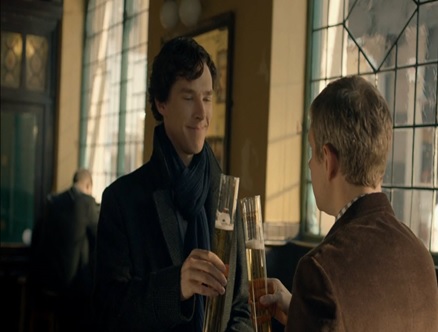Cheers!
by Vicky Theochari

Possible Origins
Ancient Times
In ancient times people believed the sound of glasses clanking together would scare away evil spirits. Therefore, people clanked their glasses together when drinking to ward off said evil spirits.
Greeks and Romans
The bouquet of the wine is for the nose, the colour for the eye, the body for taste and touch, and, of course, the clinking of the goblet for the ear. Ancient Greeks had other reasons for clinking cups: the first drink (the Proposis, or "the drink before") was taken by the gods and not the mortals whom imbibed the rest of the drink. The Homeric ritual for this act involved rising to one's feet and holding a drink in the right hand aloft, and then with both hands in air, praying "to the gods!" and then deliberately spilling some of the drink.
Germanic Tribes and Congolese
Germanic tribes would bang their cups on the table before drinking in order to knock out the ghosts, the Congolese natives would ring bells before emptying their cups for the same reason.
Normadic Tribes and Tibetans
Nomadic horsemen, like Atilia, decorated their cups and wine sacs with bells and other "clinking clutter" for the purpose of keeping out the evil. The Tibetans tapped their cups of
Kumiss before drinking. From the citizens of the Shang Dynasty crying "Kaan" to Nordic tribes in the caves of Odin cracking skulls and shaking leather wine sacs, all peoples seemed to make noise before drinking.
Lets' toast..
The expression ‘to toast’, meanwhile, does actually come from the practice of putting a piece of toast in your drink. It was something people did in Elizabethan times to improve the taste of wine – the bread soaked up some of the acidity in poor wines.The earliest written account of the custom comes from Shakespeare’s The Merry Wives Of Windsor, when Falstaff says ‘Go fetch me a quart of sack; put a toast in’t’.
Brits, of course, say ‘cheers’, which is believed to date back to the Old French word ‘chiere‘ meant ‘face, countenance, look, expression’, but by the 18th century had come to mean ‘gladness’ and began to be used as a way of expressing encouragement.

What Americans hear: ''To your good health!''
What we say: “Cheers”
What Americans hear: “To your good health”
In the U.S., this is what people say when they clink glasses in the pub. We do this too but Brits have other uses for this word, all of which will flummox your American friends. Like when we say “cheers” instead of “thank you.” Signing off a phone call or an email this way will leave U.S. folk wondering why you’re toasting them.
Happy New Year
Lord Alfred Tennyson:
Ring out the old, ring in the new,
Ring, happy bells, across the snow:
The year is going, let him go;
Ring out the false, ring in the true.
Scots tend to ring in the New Year by raising their glasses filled with whiskey rather than champs. Hogmanay, which means the last day of the year, is celebrated in Scotland.
Local customs include “first footing” which means the being the first person to step foot in a friend or neighbor’s threshold and giving a gift.
This Irish Gaelic (Northern Ireland/UK) toast says it all: Go mbeire muid beo ar an am seo arís; which translates into ‘May we be alive at this time next year.’
